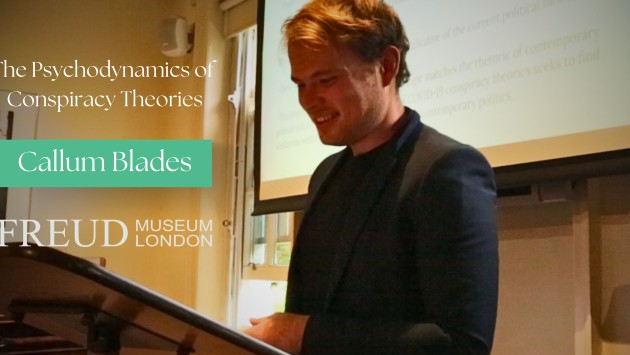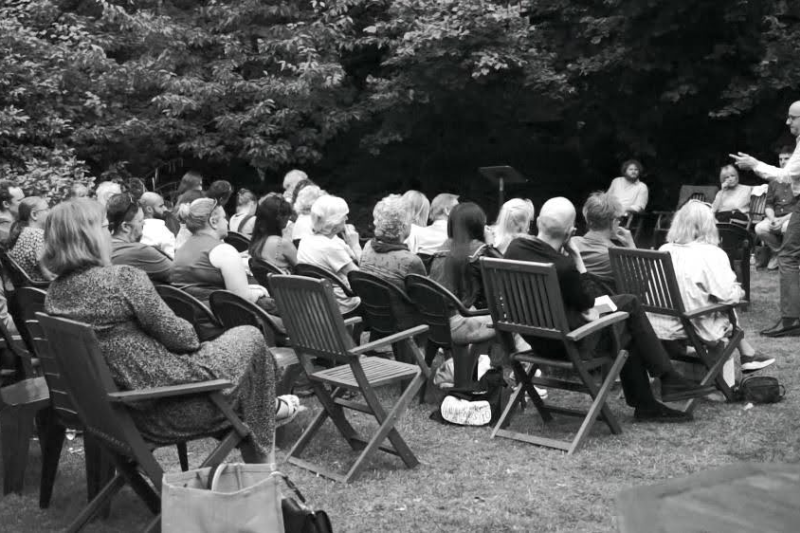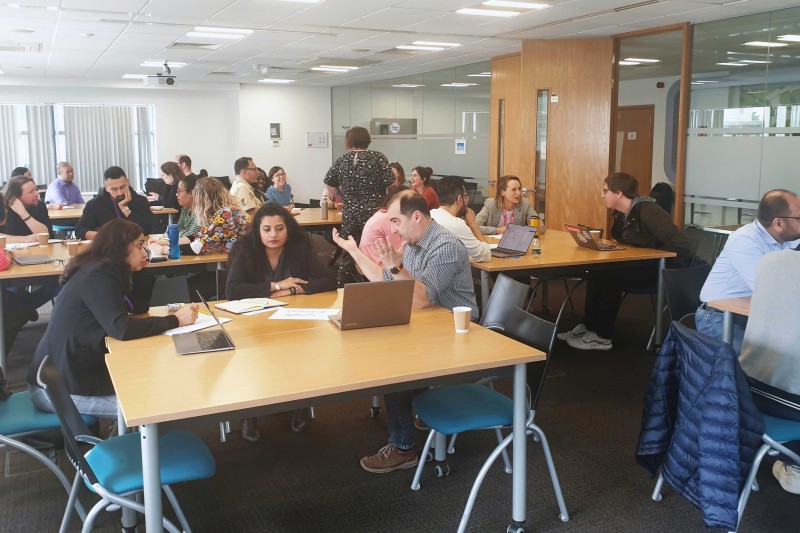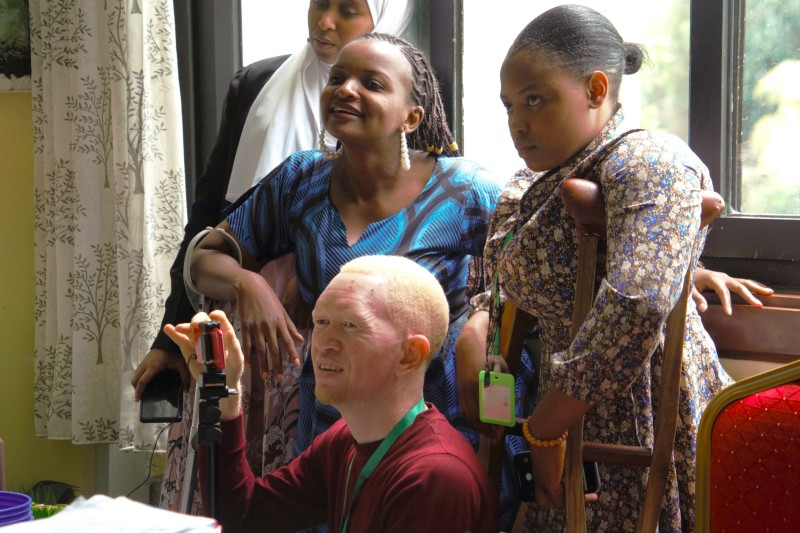A recent presentation by Callum Blades at the Freud Museum London explored the psycholoanalytic underpinnings behind conspiracy theories, focusing on the affetive responses that shape public beliefs. The talk addressed the concept of conspiracy theories and how they often arise from an inability to cope with unexpected, uncontrollable events, leading to speculatation, and the creation of alternative explanations for significant occurrences, such as the COVID-19 pandemic or the assassination of JFK.
Using a psychoanalytic approach, Callum examines how conspiracy theories reflect affective "beneath the surface" decision-making rather than logical reasoning. He analysed conspiracy-related messages on platforms like Telegram and examined stickers shared by groups such as the White Rose, identifying themes such as denial, projection, and black-and-white thinking. These conspiracy-driven communities frequently use extreme language and military metaphors to idealise freedom and demonise opposing views, including masking and government health guidelines.
Blades’ research aims to show how conspiracy theories exploit emotional vulnerabilities and contribute to public distrust in institutions, particularly during crises like the COVID-19 pandemic. Through his work, he hopes to bridge the gap between academics and the public, offering insights into how conspiracy beliefs influence contemporary political discourse and public trust.



